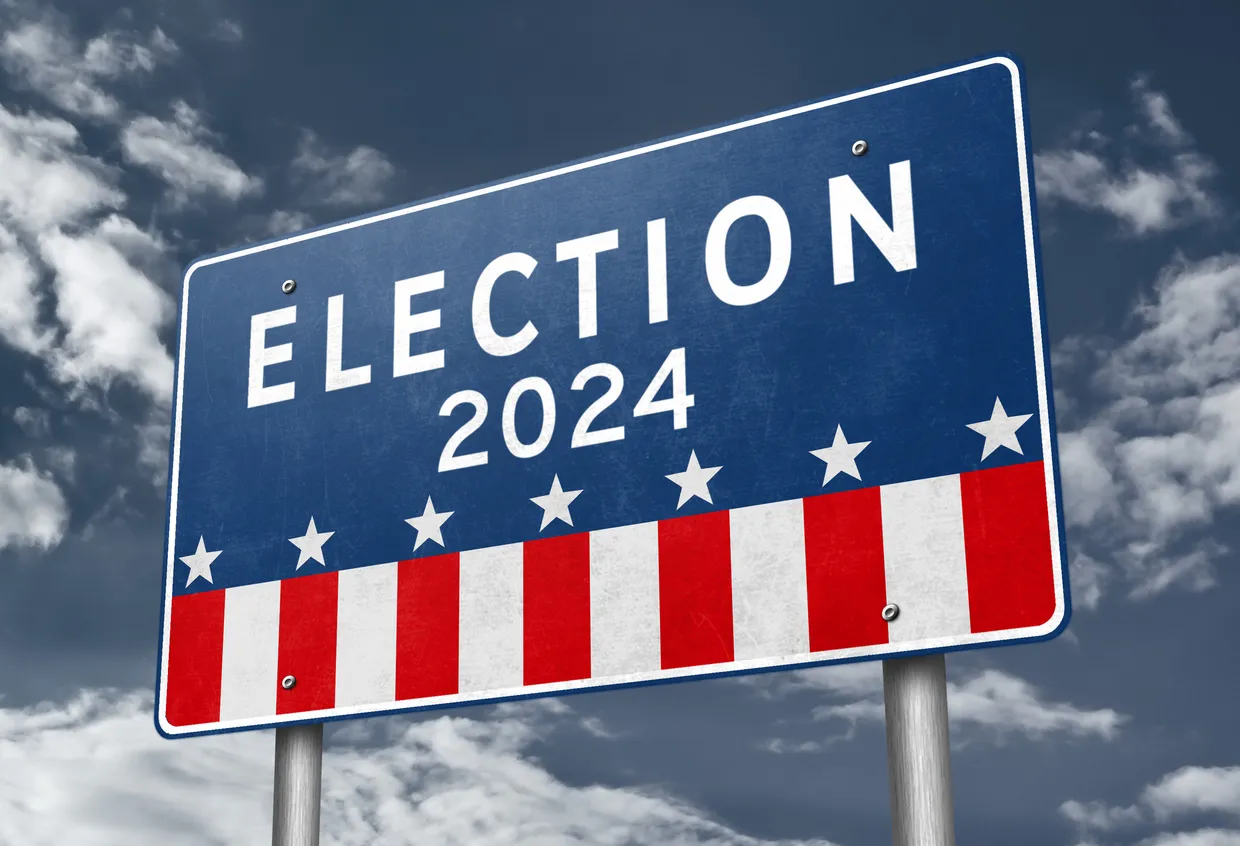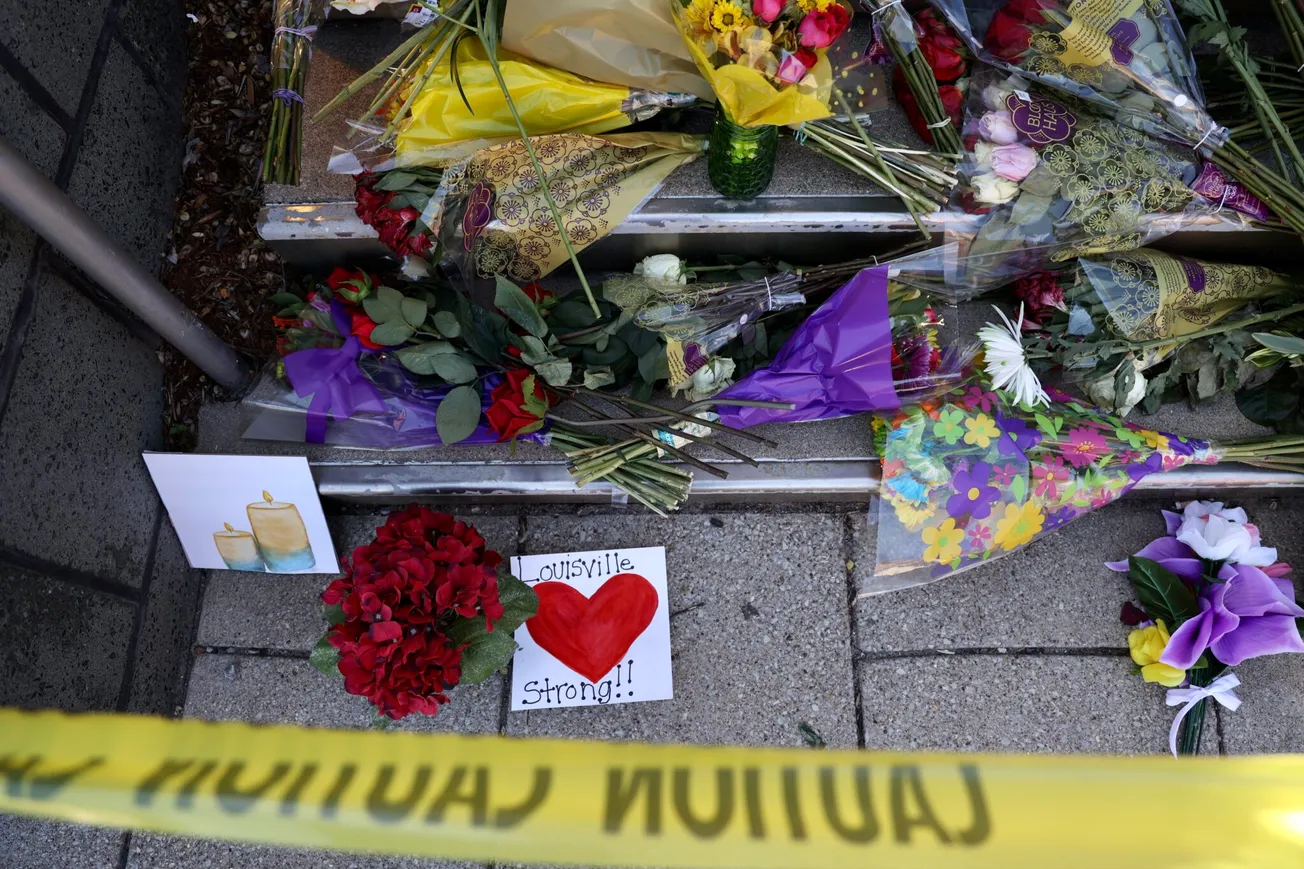Kentuckians going to the polls for the May 21 primary have choices to make about who will represent them in Frankfort, even if there’s no suspense about who the nominees for U.S. president will be.
GOP control of the legislature is not at risk this year; Republicans have supermajorities in both chambers. But there will be newcomers on both sides of the aisle come January when the General Assembly convenes for the 2025 regular session.
Republicans now hold 80 of the 100 seats in the Kentucky House and 31 of the 38 Senate seats. On the ballot this year are all 100 House seats and half of the Senate seats.
In the House, 14 sitting Republicans garnered Republican challengers. Democrats are contesting House primaries, especially in Jefferson and Fayette counties and also the 98th District in Greenup and Boyd counties where Republican Rep. Danny Bentley is not running for reelection.
And 10 House seats are up for grabs because the incumbent decided not to run for reelection or in two cases filed to run for state Senate. Altogether, there will be contested primaries in 25 House districts.
In the Kentucky Senate, six Republican incumbents have primary challengers, including two — Sens. Adrienne Southworth of Lawrenceburg and Johnnie Turner of Harlan — who have attracted two Republican rivals each.
The only Senate Democrat who has a primary contest is Minority Floor Leader Gerald Neal of Louisville, who is being challenged by former state Rep. Attica Woodson Scott and Michael Churchill Jr.
‘Core’ voters turn out for primaries
Turnout in Kentucky primary elections is traditionally low, and the 2024 presidential primary “will do little to get people to the polls,” said Stephen Voss, a political science professor at the University of Kentucky, because voters understand that President Joe Biden and former President Donald Trump will be their parties’ nominees.
“In a low intensity election like this, most of the voters are the habitual voters — the ones who view it as their citizen’s duty to vote in every election or who are so engaged in politics that they take every chance to express themselves. So, we’re going to retreat down to the core of the most politically active Kentuckians in most places,” Voss said.
Tres Watson, a former spokesperson for the Republican Party of Kentucky, said the presidential primary may affect GOP races in Northern Kentucky. Because Ohioans voted on Super Tuesday in March, Kentucky races have an easier time in the Cincinnati media market getting air time and reminders to voters to get to the polls.
Northern Kentucky typically sees higher voter turnout, Watson said, with “liberty” Republicans being very politically engaged while more casual voters tend to pick centrist establishment Republican candidates.
As for what will drive Democrats to the polls, Democratic strategist Will Carle said it will come down to the candidates themselves. “Whoever’s out there knocking on doors, delivering really good paid communications, making the actual effort to talk to voters, Democratic primary voters will come out for them.”
House party contests
The 14 House Republicans who face primary challengers include some liberty-wing incumbents, such as:
- Rep. Josh Calloway of Irvington who faces Julie Cantwell of Rineyville in the 10th District .
- Rep. Felicia Rabourn of Pendleton challenged by Mark A. Gilkinson of Bedford in the 47th District.
- Rep. Savannah Maddox of Dry Ridge who faces Jarrod M. Lykins of Walton in the 61st District.
- Rep. Steven Doan of Erlanger challenged by Diane Brown also of Erlanger in the 69th District.
More moderate Republicans also have drawn primary challengers, including:
- Rep. Killian Timoney of Nicholasville who is challenged by Thomas Jefferson of Lexington in the 45th District.
- Rep. Kimberly Poore Moser of Taylor Mill who faces Karen Campbell of Independence in the 64th District. The Republican winner in both districts will face a Democrat in November.
Several Democrats in the House are also facing primary challengers. In Jefferson County,
- Rep. Daniel Grossberg faces Mitra Subedi in the 30th District.
- Rep. Nima Kulkarni is challenged by William Zeitz in the 40th District.
- Beverly Chester-Burton of Shively faces Louisvillians Daniel Deshawn Cockrell and Shreeta Waldo in the 44th District.
In Lexington’s Democratic primaries,
- Rep. George A. Brown Jr. faces Daniel E. Whitley in the 77th District.
- Rep. Adrielle Camuel, who won a special election last year to fill the unexpired term of the late Lamin Swan, is being challenged by Sarah Ritter in the 93rd District.
The 10 open House seats — five now held by Republicans and five by Democrats — include those of Democratic Floor Leader Derrick Graham of Frankfort and longtime Republican Rep. Kevin Bratcher of Louisville who is running for the Louisville Metro Council.
Carle, who is working on Jamie Palumbo’s campaign in Lexington’s House District 76, said that race is one to watch, as long-time Democratic Rep. Ruth Ann Palumbo is not seeking reelection. The Democratic primary includes her son, James “Jamie” Palumbo, Joshua Daniel Buckman, and Anne Gay Donworth.
Carle named House District 31 in Louisville as a possible flip for Democrats in the November general election. It’s currently held by first-term Republican Rep. Susan Tyler Witten and has been favorable to Democrats in the past. Two Democrats — Carma Bell Marshall and Colleen Orsella Davis — are competing to challenge Witten.
Senate primary races
Four Republican senators face primary challengers. In Western Kentucky, Sen. Jason Howell of Murray faces Lynn Bechler of Marion in the 1st District. Sen. Stephen Meredith of Leitchfield is being challenged by Thomas Ballinger of Jetson in the 5th District.
In Southeastern Kentucky’s 29th District, two Republicans, Randy Thompson of Hindman and Shawn Andrew Gilley of Jeremiah, are challenging incumbent Turner of Harlan.
In Central Kentucky’s 7th District, first-term incumbent Southworth of Lawrenceburg faces Aaron Reed and Ed Gallrein, both of Shelbyville. Gallrein has raised the most money of the three, including contributions from prominent Republicans Senate President Robert Stivers, Secretary of State Michael Adams, and former Republican Party of Kentucky chair J. “Mac” Brown.
GOP strategist Watson said it’s hard to see a path to reelection for Southworth. Senate redistricting after the 2020 census left her only one county, Anderson, from the district that elected her. Shelby County is the bulk of the new district, along with parts of Jefferson. “When you get in these rural districts, geography matters and where you’re from matters,” Watson said.
Of the Senate’s three open seats, two winners are already determined. Rep. Keturah Herron (D-Louisville) was the only candidate to seek election to the 35th District seat held by outgoing Sen. Denise Harper Angel (D-Louisville). Craig Richardson, a Republican from Hopkinsville, was the only candidate to file for the 3rd District seat being vacated by Sen. Whitney Westerfield (R-Fruit Hill), chair of the Senate Judiciary Committee.
In Northern Kentucky’s 11th District, two GOP candidates are competing to succeed Union Republican Sen. John Schickel, who is retiring from the Senate — Rep. Steve Rawlings of Burlington and Duane Froelicher of Florence.
The 17th District seat being vacated by Senate Republican Floor Leader Damon Thayer attracted two GOP candidates, Julia Jaddock of Georgetown and Matt Nunn of Sadieville. The winner will face Democrat Kiana Fields of Georgetown in the general election in November.
What about November?
Looking toward the general election in November, Voss, the political scientist, said this election cycle is likely to favor incumbents. “It’s a sleepy election which means incumbents likely will survive,” Voss said. “Many of the districts where Republican incumbents are stepping down, the Republican electorate is large enough they’re likely to pick another member of the GOP.”
However, Democratic challengers have emerged in districts with Republican incumbents, Voss noted, particularly in areas where Democratic Gov. Andy Beshear outperformed in his 2023 reelection.
A political party can lose an election at the recruitment stage, Voss said. Without a viable candidate on the ballot, there’s no way to win the seat. Beshear’s successful reelection campaign “likely encouraged some of the candidacies we’ve seen in districts that were not Democratic slam dunks.”
“The downside to that is the Democratic Party has banked the main benefit of that good news by having actual candidates on the ballot in these places. The next step is getting those candidates the resources so that they can give voters a real choice, that they can get their message out and the voters take them seriously enough to evaluate their choices. And that’s what we don’t know yet.”
Carle, the Democratic strategist, said Democrats should look to issues Beshear touted such as economic development and raising teacher pay in order to pick up seats in the legislature. “I think Gov. Beshear has done a fantastic job, and Democrats running for the state house should and will be running on his record of record-breaking economic growth, loving thy neighbor as thyself, and trying to figure out ways to move Kentucky forward in the right direction.”
--30--
Written by McKenna Horsley. Cross-posted from the Kentucky Lantern.








